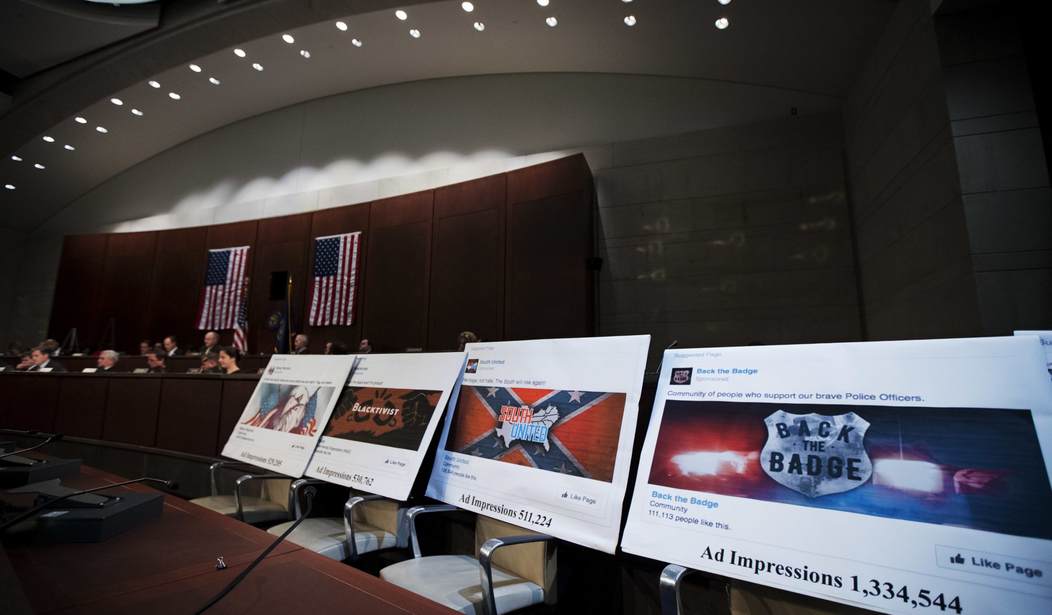WASHINGTON — An analysis of Russia’s online influence operations pre- and post-campaign 2016 released by the Senate Intelligence Committee today outlined ops spanning all social media platforms — even online gaming — and sharply tailored to distinct voting groups.
Noting that two prongs of the Russian op were attempts to hack online voting systems and the hacking of the DNC by Russian intelligence operatives, the study of the Internet Research Agency’s 2014 to 2017 tactics by New Knowledge focused on the third form of Russian interference: “a sweeping and sustained social influence operation consisting of various coordinated disinformation tactics aimed directly at U.S. citizens, designed to exert political influence and exacerbate social divisions in U.S. culture.”
“Several complete websites were created to host original written content, and to provide source material for related social accounts and personas. The breadth of the attack included games, browser extensions, and music apps created by the IRA and pushed to targeted groups, including US teenagers. The popular game Pokémon Go was incorporated into the operation, illustrating the fluid, evolving, and innovative tactical approach the IRA leveraged to interfere in US politics and culture,” says the report.
However, data turned over tothe Intelligence Committee from Twitter, Facebook, and Alphabet appears to be incomplete, it added. “Regrettably, it appears that the platforms may have misrepresented or evaded in some of their statements to Congress… It is unclear whether these answers were the result of faulty or lacking analysis, or a more deliberate evasion.”
The data that was received for study included about 77 million engagements on Facebook, about 187 million engagements on Instagram, and about 73 million engagements on original content on Twitter.
“Active and ongoing interference operations remain on several platforms,” warns the report. “…In 2017, as media covered their Facebook and Twitter operations, the IRA shifted much of its activity to Instagram.” That site “is likely to be a key battleground on an ongoing basis.”
“The most prolific IRA efforts on Facebook and Instagram specifically targeted Black American communities and appear to have been focused on developing Black audiences and recruiting Black Americans as assets,” the report continues. “… The IRA sowed both secessionist and insurrectionist sentiments, attempting to exacerbate discord against the government at federal, state, and local levels.”
Researchers broke voter-suppression operations down into “malicious misdirection,” “candidate support redirection,” and “turnout depression.”
Content-wise, “a substantial portion of political content articulated pro-Donald Trump sentiments, beginning with the early primaries” while “the developed Left-wing Twitter personas were still largely anti-Clinton and expressed proBernie Sanders and pro-Jill Stein sentiments.”
Also targeted by the influence operation were some of President Trump’s primary opponents, including Ben Carson and Sens. Marco Rubio (R-Fla.), Ted Cruz (R-Texas) and Lindsey Graham (R-S.C.), as well as former FBI Director James Comey and special counsel Robert Mueller.
The content produced by the Russian op centered around key themes: “Black culture, community, Black Lives Matter; Blue Lives Matter, pro-police; anti-refugee, pro-immigration reform; Texas culture, community, and pride; Southern culture (Confederate history); separatist movements and secession; Muslim culture, community, and pride; Christian culture, community, and pride; LGBT culture, community, and pride; Native American culture, community, and pride; meme and ‘red pill’ culture; patriotism and Tea Party culture; liberal and feminist culture; veterans issues; gun rights, pro-2nd Amendment; political pro-Trump, anti-Clinton content; pro-Bernie Sanders and Jill Stein content; Syria and ISIS, pro-Assad, anti-U.S. involvement; trust in media.”
“Based on the metadata provided by Twitter, most of the IRA twitter accounts were registered through various proxy services in the United states and Europe. Accounts intended to pass as American were registered from U.S. IP addresses, and accounts intended to pass as Germans were registered from German IP addresses. A significant number of IRA twitter accounts however, were registered from either a single IP address in Venezuela or the IRA building’s real IP address in St. Petersburg,” the report continues.
“Our impression of the IRA’s Twitter operation is that it was largely opportunistic real-time chatter; a collection of accounts, for example, regularly played hashtag games. There was a substantial amount of retweeting. By contrast, Facebook and Instagram were used to develop deeper relationships, to create a collection of substantive cultural media pages dedicated to continual reinforcement of in-group and out-group ideals for targeted audiences. Twitter was, however, a part of the cross-platform brand building tactic; several of the Facebook, Instagram, Tumblr, and Reddit pages had associated Twitter accounts.”
Senate Intelligence Committee Chairman Richard Burr (R-N.C.) said the research “demonstrates how aggressively Russia sought to divide Americans by race, religion and ideology, and how the IRA actively worked to erode trust in our democratic institutions.”
“Most troublingly, it shows that these activities have not stopped,” Burr added. “As we work to address these threats, these reports are proof positive that one of the most important things we can do is increase information sharing between the social media companies who can identify disinformation campaigns and the third-party experts who can analyze them.”
Vice-Chairman Mark Warner (D-Va.) noted that “these attacks against our country were much more comprehensive, calculating and widespread than previously revealed.”
“This should stand as a wake up call to us all that none of us are immune from this threat, and it is time to get serious in addressing this challenge,” he said. “That is going to require some much-needed and long-overdue guardrails when it comes to social media.”









Join the conversation as a VIP Member